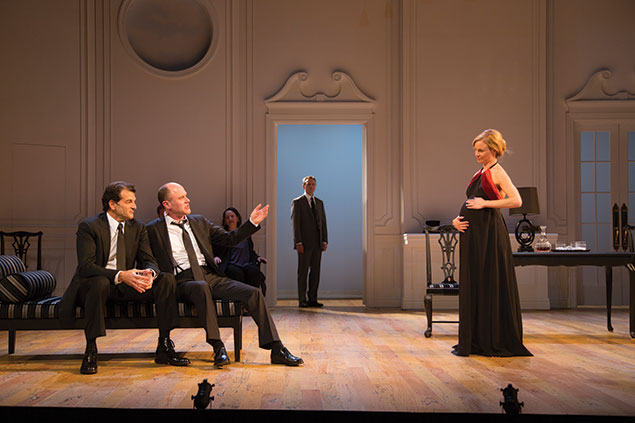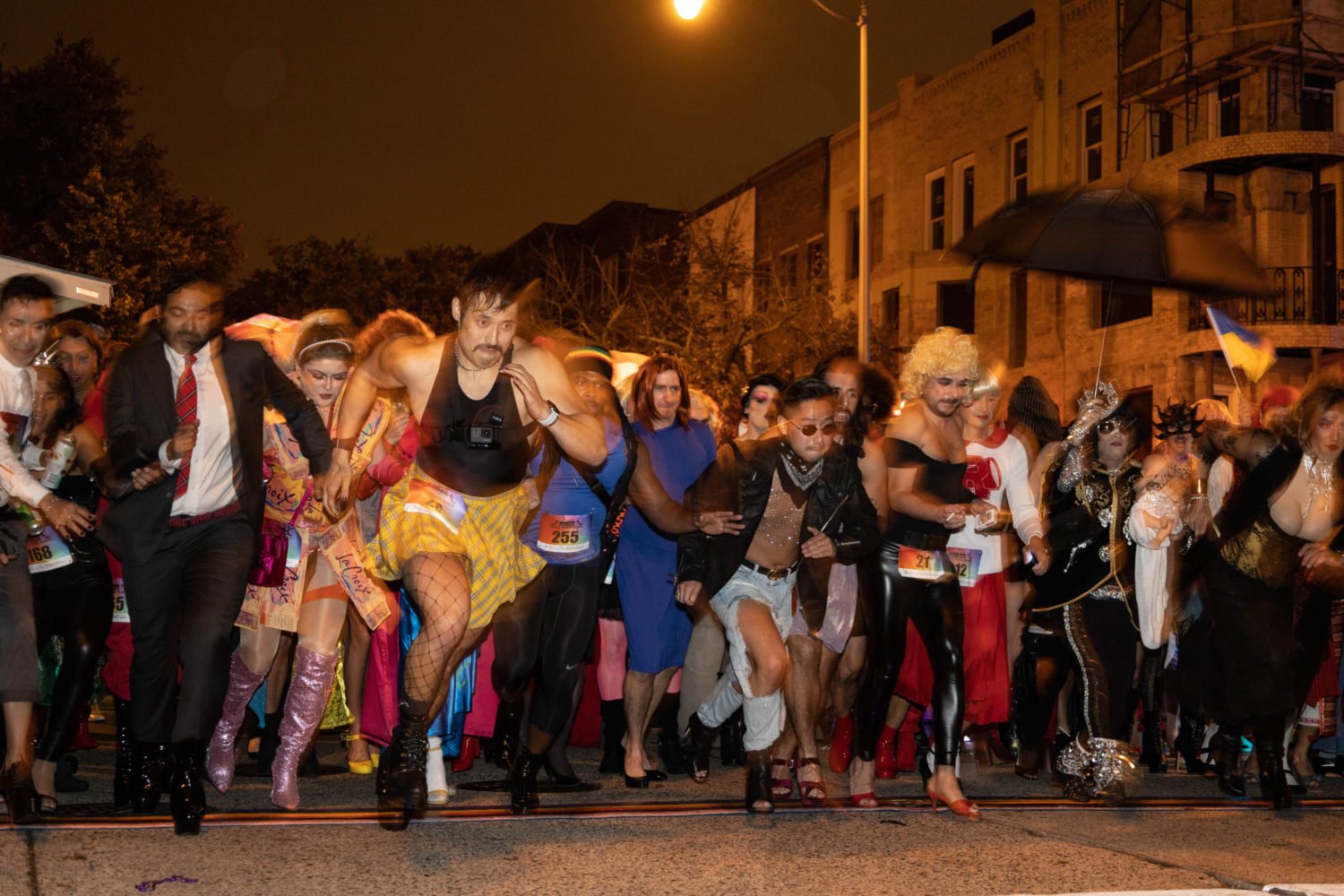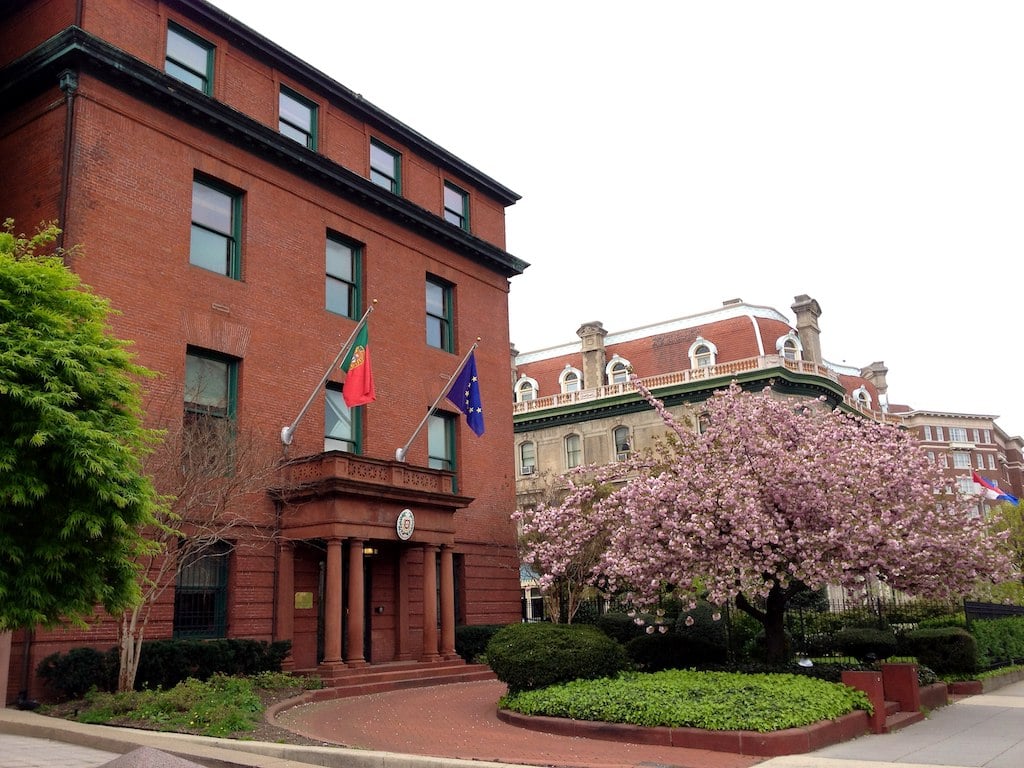
When you’ve had more conceptual makeovers and reboots than a Barbie doll (rodeo Shakespeare!
Hedge funder Shakespeare!), sometimes a little simplicity can be bracing.
The Winter’s Tale, currently playing at Shakespeare Theatre in a transcendent co-production with the MacArthur Theatre Center by
Rebecca Taichman, is an example of how rich a Shakespeare play can be when it isn’t hampered by theme
or construct. Taichman’s actors are in modern dress, on sets that feel like heightened
versions of reality (sometimes chemically so), and the resulting action crystallizes
both the timelessness and the richness of the material. There are times in this production
when the action feels more like Euripides or Ibsen than Shakespeare, and that’s a
good thing.
More problematic than the play’s awkward structure, which consists of three acts of
intense drama and two of gently ridiculous pastoral comedy, is the plot, which sees
King Leontes (Mark Harelik) inflict an impossibly cruel punishment upon his wife and unborn child when he becomes
convinced she’s been unfaithful. (The storyline was believed to have been inspired
by the sad fate of Anne Boleyn.) Taichman tackles this gracefully by suggesting that
Leontes is quite mad and suffering from the same kind of temporary insanity that caused
Heracles to murder both his children. In the king’s asides to the audience, the lights
go dark and we hear the pounding sounds of an interminable bass beat, along with fragments
of voices and mocking laughter. There are no subtitles spelling out S-C-H-I-Z-O-P-H-R-E-N-I-A
but there may as well be.
Leontes’s court is apparently set in a starkly elegant black-and-white drawing room
(the sets are by
Christine Jones), and when the curtain rises, he and his heavily pregnant wife, Hermione (Hannah Yelland), are engaged in such a complex embrace with King Polixenes (Sean Arbuckle) that it’s hard to tell who’s married to whom. Leontes’s courtiers sit on chairs
upstage when they aren’t present in scenes, and his son, Mamillius (Heather Wood) plays quietly on the floor. All is seemingly sunny, with both Leontes and Hermione
entreating Polixenes to stay with them longer, until jealousy starts to corrode the
king’s sanity. Leontes orders his trusted friend Camillo (Brent Carver) to kill Polixenes, but Camillo warns the other king instead, and the pair flee,
while Hermione is imprisoned, and Antigonus (Ted van Griethuysen) is ordered to take her baby to an isolated spot and abandon it to the mercies of
nature.
Harelik is magnificent as the awful, tortured king, spilling whiskey on the stage
with shaky hands and running his wife’s black shawl through his fingers over and over,
as if he might like to throttle her with it. Yelland, dignified and regal even in
her prison rags, is equally compelling in the face of this mad despot. But Harelik’s
performance is all the more astonishing when the action shifts to rural Bohemia, with
its soft green lighting and a large cardboard picture revealing the kind of lush,
idyllic field elderly PC users have as their desktop wallpaper. If the first two acts
are emotionally amplified drama, the pastoral scenes are nature on hallucinogens,
with giant butterflies roaming the stage and cutouts of sheep propped against chairs.
And yet somehow the transition works.
Harelik dons a magician’s cape to play Autolycus, a con man, while Wood takes off
her fuzzy robe and puts on a pink dress to become Perdita, the baby abandoned and
rescued by a kindly shepherd (also van Griethuysen) and his simple son (Tom Story). Just like that, the play becomes a comedy, with a lusty sheep-shearing festival
accompanied by an onstage band (the excellent musicians are
Stephen Feigenbaum,
Anne Ament, and
Douglas Dubé). The original music, composed by
Nico Muhly, is remarkably effective, and the mood is so jovial it’s as if Leontes never even
existed.
There are constant references to transformation in this production, whether it’s Harelik
and Wood changing characters before our very eyes or the play’s stunning final scene
(for which Yelland deserves a Helen Hayes Award for simply standing).
David Zinn’s costumes turn into disguises, or even part of the set, and moods change just as
swiftly. The cast, from
Nancy Robinette’s loyal Paulina to Story’s dual role as a shepherd and a courtier, are universally
adept at shifting from tragedy to comedy in a heartbeat, and it’s done so efficiently
in this production that it’s hard not to marvel at the unexpected grace of it all,
even as it mirrors the mercurial nature of life itself. Some ill planet may reign
over Sicilia, but at the Lansburgh, all seems to be smooth sailing.
The Winter’s Tale
is at Shakespeare Theatre through June 23. Running time is about two hours and 50
minutes, with one intermission. Tickets ($43 to $105) are available via Shakespeare’s
website.
















